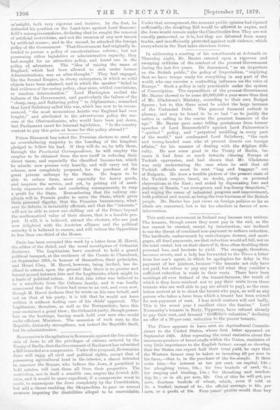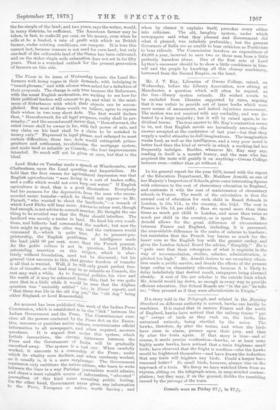The Times appears to have sent an Agricultural Commis- sioner
to the United States, whose first letter appeared on September 24th. After repeating the usual statistics about the enormous produce of bread-stuffs within the Union, statistics of very little importance to the English farmer, except as showing that the States can export half their total yield, he says that the Western farmer may be taken as investing £2 per acre in his farm,—that is, in the purchase of the fee-simple. It then costs him,—for interest at ten per cent. on capital, 14s.; for ploughing twice, 10s. ; for two bushels of seed, 8s. ; for reaping and binding, 10s. ; for thrashing and market- ing, 2s. ; or in all, per acre, 32s. Out of this ho will get, per acre, fourteen bushels of wheat, which, even if sold. at 3s. a bushel, instead of 48., the official average, is 4214. per acre, or a profit of 10s. Four years' profits would thus buy
the fee-simple of the land; and. two years, says the writer, would, in many districts, be sufficient. The American farmer may be taken, in fact, to make 25 per cent. on his money, even when he sells at 3s. a bushel, a rate of profit with which no British farmer, under existing conditions, can compete. It is true this cannot last, because manure is not used for corn-land; but only one-half of the culturable land of the States has been cultivated, and on the richer virgin soils exhaustion does not set in for fifty years. That is a wretched outlook for the present generation of farmers on this side.



































 Previous page
Previous page